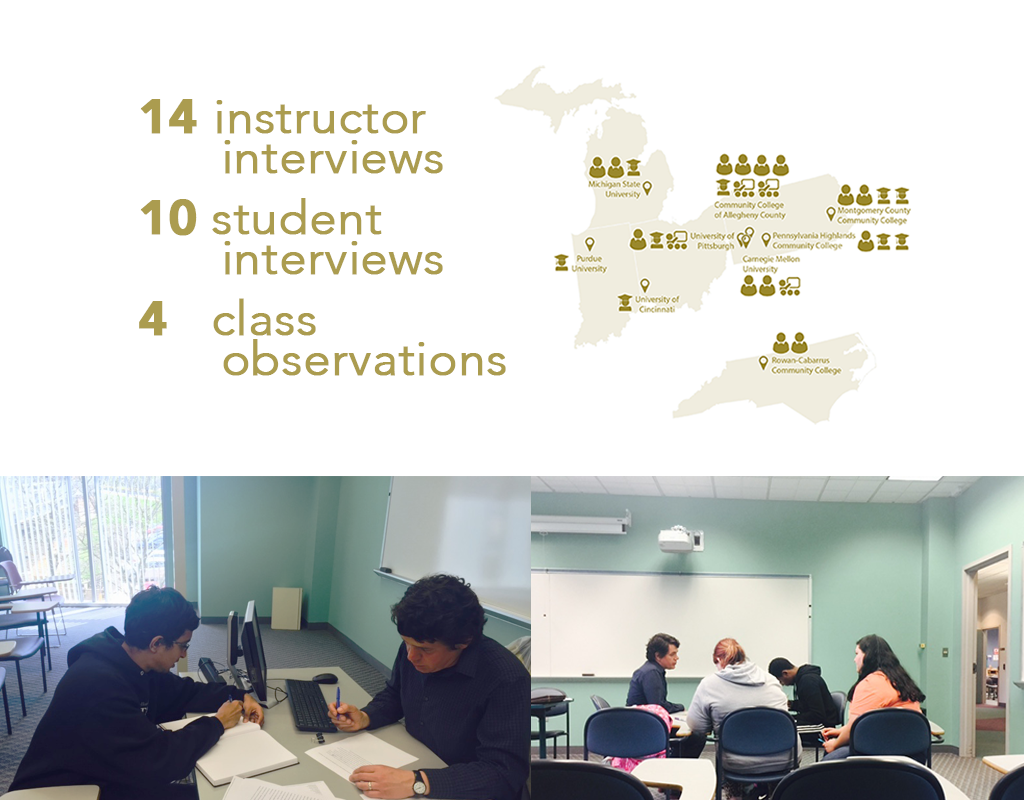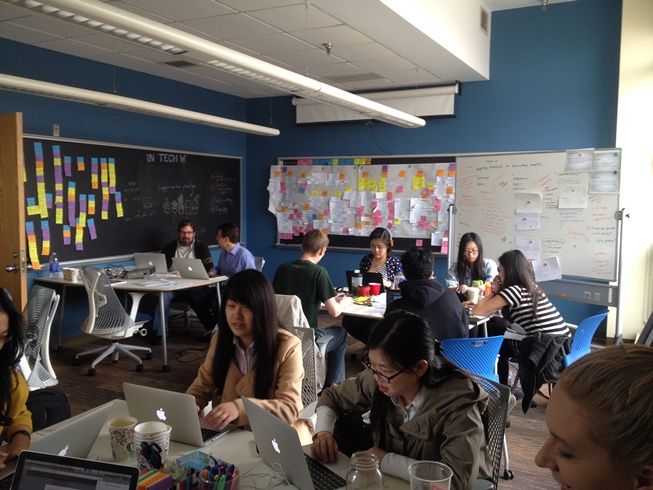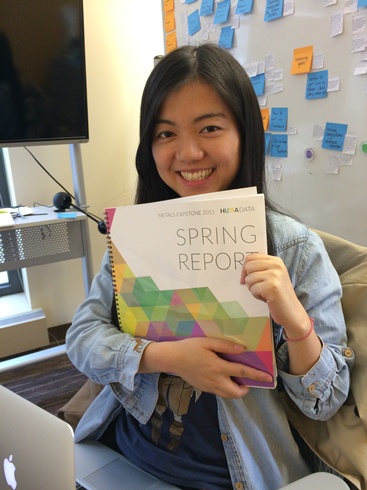Master of Educational Technology and Applied Learning Sciences: Capstone
A Unique Opportunity for Students and Sponsors
METALS culminates with a 7 month METALS Project course that is the focus of the second and third semesters. In this course students practice learning engineering applying the techniques, theories and methodologies that they have mastered in the program to deliver a high fidelity prototype for their client. The prototype serves as a proof of concept for the client’s new or enhanced EdTech-based service, product or system. Teams of 4-6 students are purposefully interdisciplinary and have a variety of backgrounds including computer science, psychology, education, design, business and related programs.
The Capstone Project is one of the most unique and desirable components of this program for students. Students gain practical experience while working with faculty and industry mentors in team-based research and development projects. Many of our students choose the Carnegie Mellon METALS program based on its reputation, the strength of the faculty, and the practical experience that the capstone projects provide. (See past projects here; read about the advantages of becoming a capstone sponsor here; see our list of current & past sponsors.)
Capstone Learning Objectives
Communication and Collaboration
- Learn to collaborate considerately and professionally on a team project for a client.
- Acquire the skill of developing and articulating a project scope, in particular in the writing of a descriptive and precise “Hunt Statement”.
- Learn to design, develop and deliver professional presentations to a client and other stakeholders/or potential end-users, including pitching system design ideas.
- Learn to create a polished and professional website that describes the team, its objectives, its research, its design and development process, and the path to achieving project goals.
- Learn to package project results in a professional report for future reference by a client and your team.
- Learn report elements including the research, design, development and outcomes of the project.
- Learn how to create an archive of project data and outcomes.
Research and Design
- Learn how to design an educational system within client constraints based on research, literature reviews and competitive analysis.
- Learn and appropriately apply techniques of knowledge and data acquisition and learner experience design, including but not limited to contextual inquiry, affinity diagramming, storyboarding and experience mapping.
- Learn how to execute research in a commercial context, including a competitive analysis, literature reviews, and interviews, contextual inquiries, and/or other qualitative data collection techniques.
- Practice and learn design revision based on walkthroughs with a client and other team members or stakeholders.
Prototyping and Development
- Learn to build prototype systems based on research, including:
- Prototype iteration, employing the Agile methodology, incorporating feedback from the client and potential end-users.
- Using prototyping and/or mockup tools (e.g., Balsamiq).
- Revising prototypes based on walkthroughs with the client.
- Learn how to creatively draw on advanced technologies as appropriate to meet the needs of a client and especially of their customers.
- Learn to develop a functioning prototype or real system based on client needs and within client technical infrastructure constraints.
Overview of the Capstone Project
The METALS capstone project is a 26-week course that spans both the spring and summer semesters.
It is the culmination of METALS students’ work at Carnegie Mellon. The capstone project combined with the strength of program faculty and the reputation of the department makes the METALS program one of the top education technology and applied learning sciences master programs.
Each interdisciplinary team consists of two Carnegie Mellon faculty, the sponsor’s representative, a METALS alumni mentor and 4 to 6 METALS graduate students with backgrounds in design, computer science, education and psychology. Teams are assigned a sponsor. The sponsoring client defines the project area and guides its direction.
The two Carnegie Mellon METALS faculty members mentor student projects and meet with teams on a weekly basis as well as provide ongoing lectures throughout the spring and summer semesters. Sponsors meet with teams at least weekly throughout the project as well as responding to calls and email for questions and feedback.

In the summer semester, students engage in a prototyping, analysis and user-testing phase where they produce prototypes with increasing fidelity and iteratively test them with users to improve the design. Teams have weekly iteration cycles, so by the end of the summer, product prototypes are refined and adapted to user needs. The final product is a high fidelity working prototype that clients can use that provides enough detail for the client to implement their own system.

Our Students Say…
“I thought my capstone experience would be like any other project with all work ending up in a presentation or report that no one ever remembered or benefited from except for the members themselves,” said METALS ’16 alumni Kathy Yu. “It was a very new experience for me to see my regular schoolwork being ground-breaking work for an actual company (or even the US Government).”
Steven Dang (METALS ’15) explained his experience with the capstone project as an opportunity to apply knowledge from past classes to a real-world problem. “The capstone was both more grounded in the demands of a real-world set of students and was an opportunity for us to apply knowledge from all classes at once to a problem. I also found managing both internal group productivity and external client/manager demands and expectation to be a very valuable skill that was emphasized in the course. Coming from the defense industry, this was a very common concern that I had to develop on the job, and it was refreshing to see a master’s program explicitly preparing their students with these skills.”
“I think that learning engineers and learning designers are really one of the up and coming professions. Pittsburgh is also an ideal place to be if you’re interested in educational technologies,” Mark Potter said, a 2014 Alumni and learning designer for Pearson.
See past projects here; read about the advantages of becoming a capstone sponsor here; see our list of current & past sponsors.

